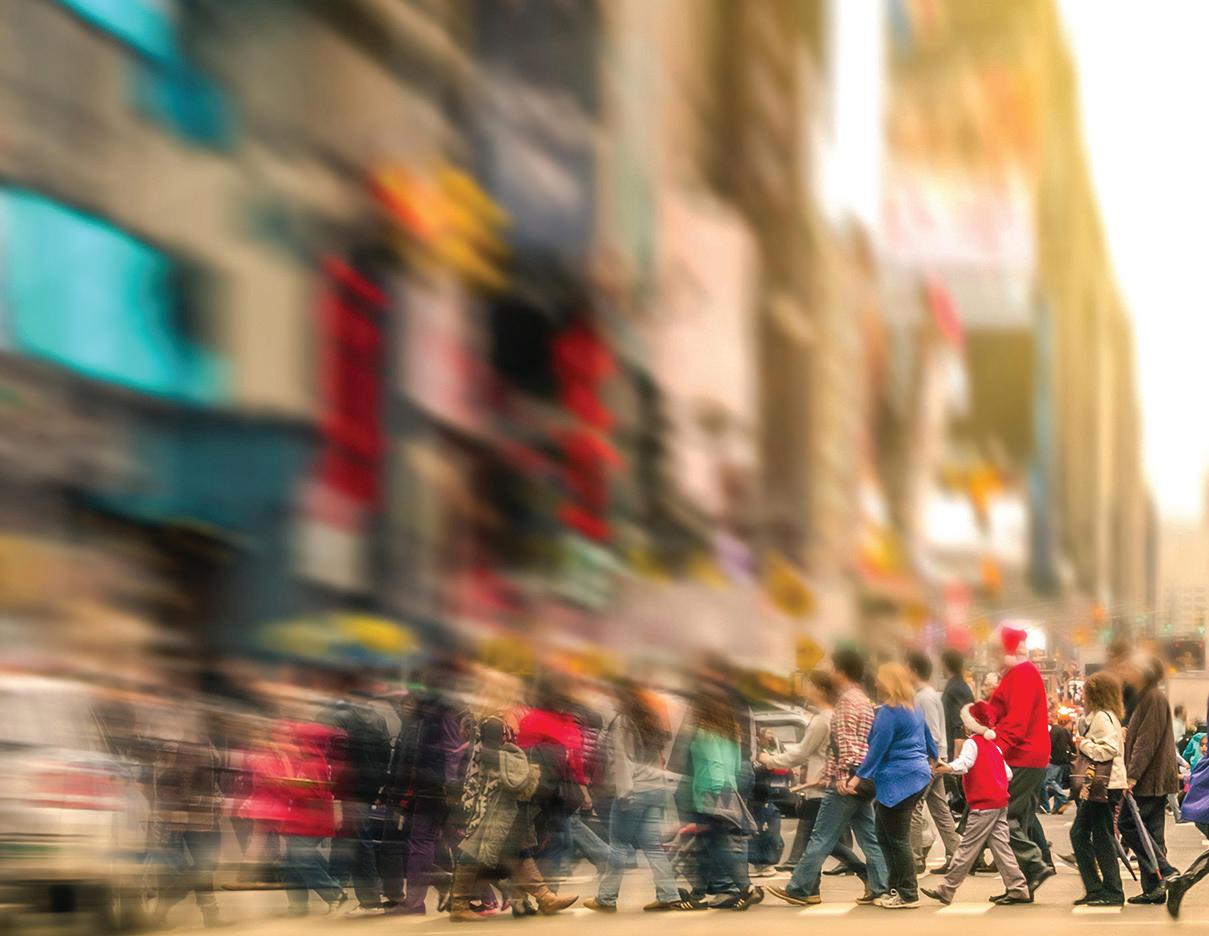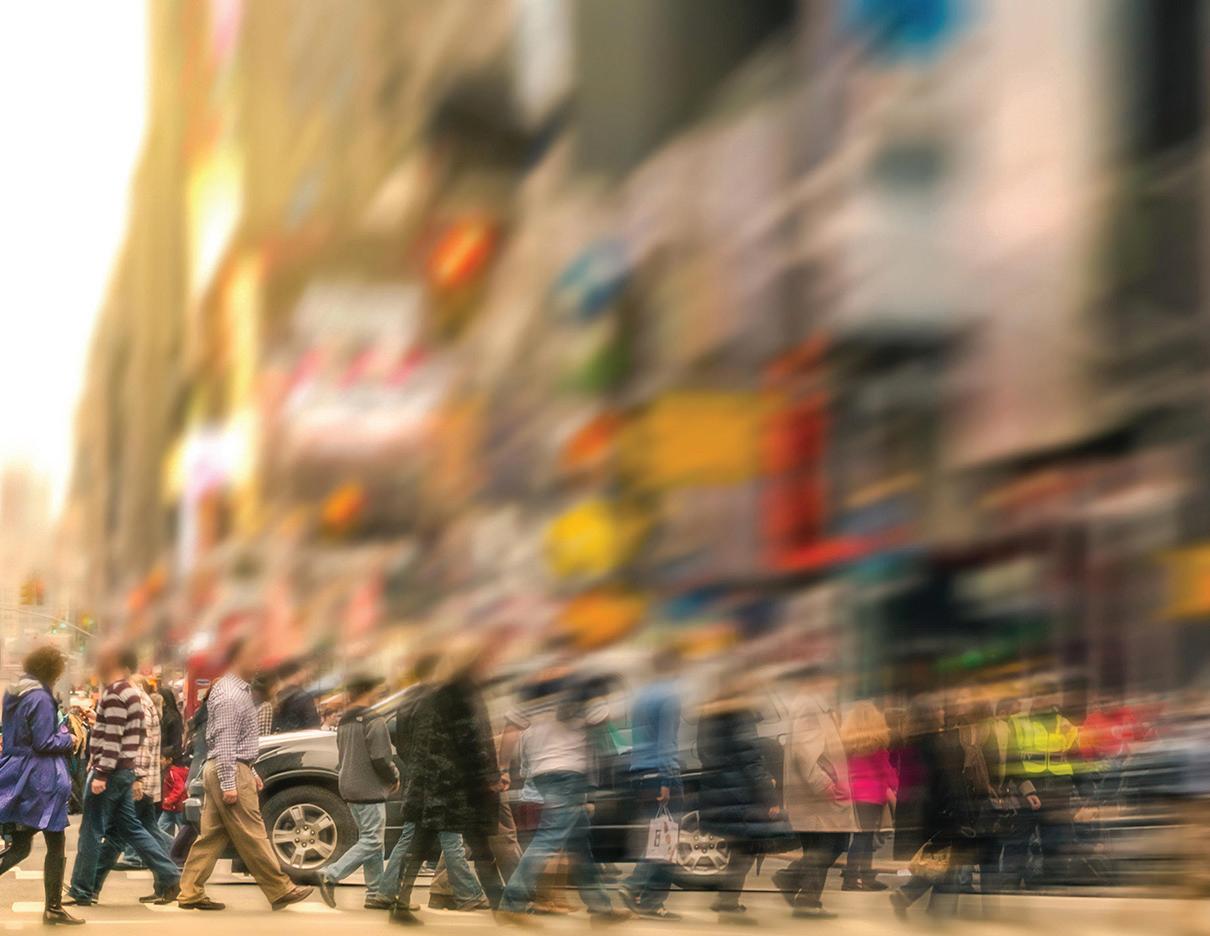
4 minute read
Social Justice in Action at S:US
S:US is a unique organization that not only fights for social justice for individuals but also works on the ground to make real, sustainable, and enduring change in communities.
A place to call home, access to education, a job, friends and family, a community - these are the most basic elements we all hope for as we seek to lead a satisfying life. However, if you are a person with an intellectual disability or an individual with mental health challenges, our systems and communities often deny you these basic rights. If you are Black, Brown, an indigenous person, or LGBTQ, your opportunities for these basic elements are often out of reach.
Advertisement
S:US works 24 hours a day, 365 days a year to overcome these injustices. On the broad, systemic levels, our leadership works to change policies and regulations that are discriminatory and unjust. At the local levels, our leadership and staff work with elected representatives, community boards, civic associations and neighborhood groups to break down the stigma that often accompanies the people we serve, and to help ensure their full integration and acknowledgement as participating citizens of their communities. We work to ensure that the solutions we offer are grounded in and emerge from the people experiencing injustices. Our impact is evident in both systemic and practical, day-to-day examples of how our world is changed for the better though our work. While we are proud of our accomplishments, we know there is much still to be done.
As New Yorkers, homelessness and poverty affect us all. Affordable housing, access to health care, educational opportunities, and healthy foods; the availability of a trained and dedicated workforce; safe communities -- all are impacted by how we choose to break the cycle of homelessness and poverty. S:US does it by partnering with the people we serve and investing in our communities.
Everyone needs safe, quality, and stable housing, and housing is at the core of S:US’ work. For some of the most vulnerable people in New York—people with mental health challenges, chronic health conditions, histories of trauma, and other challenges—having a home is the first step on the path to stability, security, and well-being. But we know that housing is only part of the solution. Some people face conditions that make it difficult to maintain a stable home and may need services wrapped into their housing.

SOCIAL JUSTICE IN ACTION AT S:US (continued)
S:US’ services help interrupt and break cycles that have held people back as we provide the supports necessary for people to overcome challenges. We help vulnerable people understand their rights and responsibilities as tenants, meet their obligations, and avoid eviction; we make sure that people with chronic illnesses and substance use or mental health challenges manage their diet and medical needs, helping to keep them out of hospitals, nursing homes, or other facilities; we help people with disabilities access better health care, secure and sustain employment with ongoing support, and contribute meaningfully to their community; our Urban Farms initiative provides education and experiences through horticulture, expanding access to fresh and healthy food, increasing understanding of nutrition, and improving health and wellness
outcomes; we provide stable and positive conditions that reduce the use of costly systems like emergency health services; we create opportunities and change economic dynamics to keep people out of the criminal legal system, or support the transition back to society from a period of incarceration; we help families stay together Some of us face more when facing challenges. barriers than others As New Yorkers, we pride ourselves on being leaders, on because of who we are, supporting our neighbors, on our own resilience and that of what we look like, or our city, on embracing diversity, where we come from. and on advancing social justice and racial equity. Yet we also know that inequity persists, and that its effects can be devastating. Some of us face more barriers than others because of who we are, what we look like, or where we come from. Systemic biases in our education, health care, and criminal legal

THERE IS MUCH STILL TO BE DONE.
systems, and implicit bias in hiring and lending practices harm socially and economically marginalized people and communities. These biases deny opportunity, and lead to unjust outcomes in housing, employment, health, life expectancy, and overall quality of life.
At S:US we believe that when each of us is better off, we are all better off. We understand that for there to be long-term social change, we must invest in people and communities. For more than 40 years, S:US has worked with and in underserved and underrepresented communities. We understand these communities as our roots run deep, and we understand the tools that people need to empower themselves and to improve their life circumstances.








